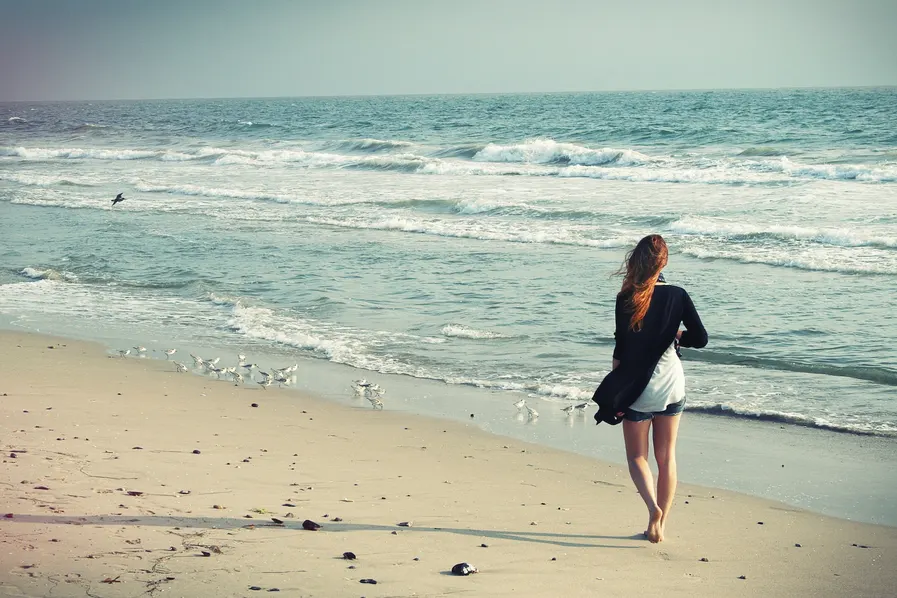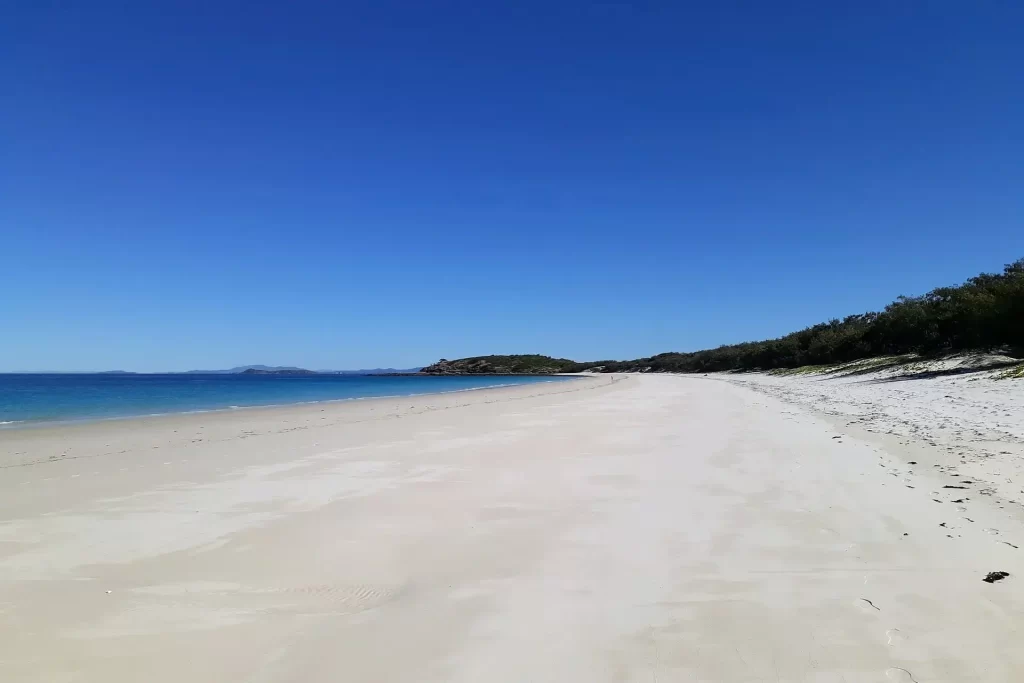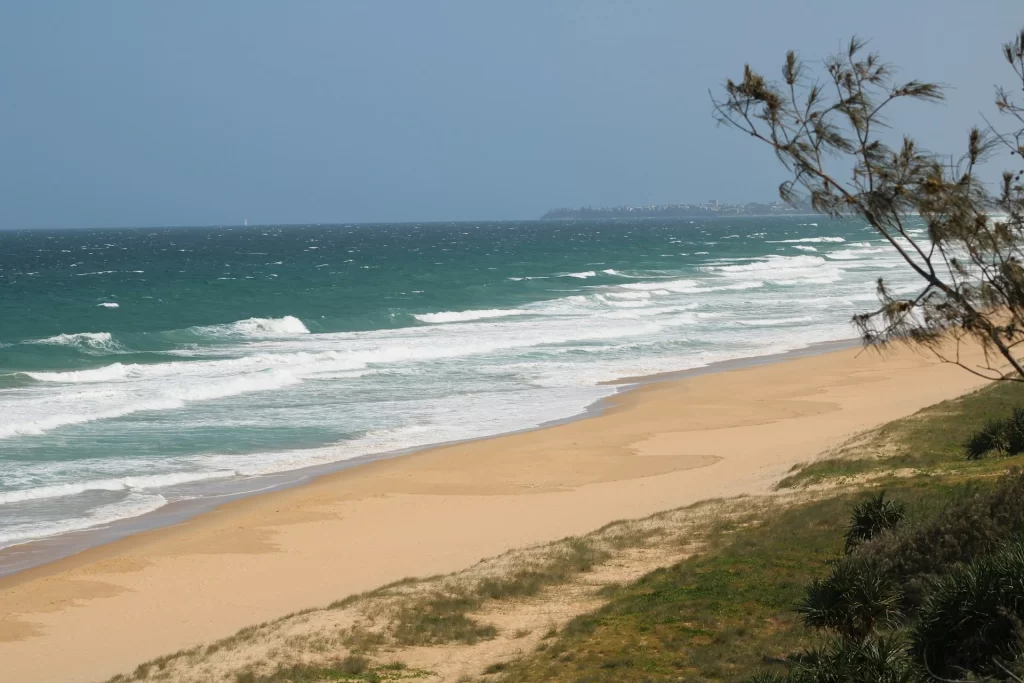Mental and physical health benefits of walking on sand by the ocean

Table of Contents
Do you love a good beach walk? Then this post should be of interest to you! Here is how it pans out.
1. Introduction
2. Health and Wellness Benefits of a Beach Walk
2.1 Great Exercise
2.2 Vitamin_D
2.3 Sunlight Reduces Depression
2.4 The Ocean Air Is Good For Your Lungs
2.5 Reduce symptoms of Arthritis
2.6 Boosts your Creativity
2.7 Reduction in Pain
2.8 Free Foot Massage and Exfoliation
2.9 Digital Detox
2.10 You Sleep Better
3. A few beach walking tips
4. FAQs
(This post contains affiliate links, which means I may receive a small commission at no additional cost to you if you interact with them).
Read Time: 7 Minutes
Introduction
You’ve no doubt heard the saying ‘an apple a day keeps the doctor away’. But did you know a beach walk a day keeps the doctor away too?
Walking on the beach is a popular activity. Enjoyed by millions of people around the world. Infact, it is one of the best things to do on the beach other than sunbathe.
Those who are living their best beach life might already know of the health and wellness benefits of beach walking.
But if you are not familiar with them then you are in for a bit of enlightenment.
That is because walking on the beach is very good for you.
Don’t believe us? Then check out this list below.
Health and Wellness Benefits of a Beach Walk
These 10 factors outline why a beach walk is very good for you.
1 Great Exercise
Walking on the beach is a fantastic workout.
Infact several studies posit that walking on the beach is actually a better workout that walking on concrete. This is because you have to work harder to traverse the sand. Even if you are walking at the same speed.
Sand creates resistance to your ankles, leg muscles and arches. Ensuring they go through their full motion range.
When your feet sink below the surface of the sand, your muscles work as much as 2.7 times harder to get it back up and move you forward, than they would on concrete. This in turn has the added benefits of toning up and strengthening them.
So even if you usually walk 5km a day on the pavement, it won’t be as beneficial for you in terms of physical exertion as a 5km walk on the beach. Not least because you will burn more calories.
According to Berkley Wellness, you can expect to burn around 50% more calories by walking or running on sand than you would on the pavement.
Vitamin D
Vitamin D is very important to maintaining our health, because it performs a number of key functions. This includes boosting our immune system and regulating our cell growth and inflammation response. As well as improving muscle strength, strengthening bone formation and even hormone production. It can even help to fight certain diseases and aid weight loss.
A walk on the beach provides you with plenty of exposure to vitamin D. The more you can top up your levels the healthier you will feel.
Sunlight Reduces Depression
One other benefit to all that vitamin D you get during a walk on the beach is that it can actually help reduce depression too.
Exposure to sunlight is believed to boost the brain’s release of serotonin. This is a chemical which has several functions within our bodies. It is often referred to as the ‘happy chemical’, because it facilitates happiness and wellbeing.
It can help improve your mood and also make you feel more calm and focused.

The Ocean Air Is Good For Your Lungs
Walking on the beach and breathing in that fresh salty air has long been muted as a great option for those who suffer from respiratory issues.
Infact many studies support the notion that breathing in ocean air is a terrific way of healing several types of afflictions, most notably some lung diseases.
An article published by Wall Street Journal, referred to a study in Australia that monitored what effect ocean air had on sufferers of cystic fibrosis who went surfing. The research lasted 4 weeks short of a calendar year and produced some evidence that the salt air was helping to clear out the lungs of the patients, ensuring they had fewer flare-ups and a reduced need for certain antibiotics.
Likewise, according to findings from Exeter University, those residing by ocean are much healthier than folk living over 50 miles inland. They posited the salt rich coastal sea air was very beneficial for one’s respiratory system. Suggesting that those with bronchitis, asthma, coughing and sinus pressure, will notice a difference in their condition after just one day at the beach.
The reason for this they tendered is because coastal air possesses hydrogen ions that are negatively charged. They assist your body to absorb more oxygen and enhance your serotonin levels. In turn, this results in you being more energetic and experiencing reduced levels of depression.
Reduce symptoms of Arthritis
Spending a bit of time with your feet in the cool ocean water may reduce the prevalence of rheumatoid arthritis symptoms.
That is according to a recent study which determined patients using bath salts derived from Dead Sea minerals experienced less symptoms, like morning stiffness.
This is probably because salt water serves to dehydrate inflamed cells in the body. This in turn reduces inflammation.
Sea or ocean salt can be absorbed into the skin as you soak in the water. Therefore reducing swelling and pain.
Boosts your Creativity
Stuck for an idea? Need some inspiration?
You might just get it at the beach.
A study in 2011 found that not only can the beach help you feel healthier and happier, it can also boost your creativity too.
Marine biologist Wallace J. Nichols concluded in his book Blue Mind, that being near the water increases our innovation and insight. Allowing us to conceive new creative ideas. This may explain why many people seek the beach as a source of inspiration.
Reduction in Pain
Doing a beach walk barefoot on the beach gives you the perfect opportunity to absorb energy from the earth. A concept known as ‘grounding’ or ‘earthing’’.
Many people believe grounding helps you to improve chronic pain relief and also reduce fatigue. This is because the energy of the earth in the form of its surface electrons flows through your body.
There is some research that supports the notion such electrons can result in changes to your body including pain reduction and an improved quality of sleep.

Free Foot Massage and Exfoliation
Walking barefoot on sand, combined with standing in the ocean, will actually serve to massage the soles of your feet. This motion stimulates lymphatic and venous circulation, therefore relaxing your feet and making it feel nice.
Similarly walking on the sand also exfoliates your feet. Wet sand essentially is an exfoliant which serves to peel your dead skin cells away from your body. Thus making your feet feel softer.
Digital Detox
Doing a beach walk means you are not sitting in front of the tv or your laptop. It also means you are less likely to be staring at your phone or tablet.
Too much screen time has been proved to cause poor vision. As well as poor sleep, back and neck pain, and even impaired cognitive function.
So having a digital detox and getting away for a walk on the beach can be very beneficial.
According to published research from Gothenburg University in Sweden, constantly being connected to electrical devices has been linked with loss of sleep, depression and stress.
However to counter this, time spent at the ocean, sea or even a lake, can nullify the dulling effect of too much screen time.
That is because the water, sunlight and air collectively improves your mood, opens your mind and stimulates your senses.
You Sleep Better
A visit to the beach helps you sleep better.
According to a UK based study in 2015, people sleep for about 47 minutes longer on average the night after they spend some time during the day at the beach, than those who did not go there.
Although scientists have yet to formally conclude as to why this happens, the general consensus is because it has something to do with the beach’s propensity to clear your mind.
People tend to calm down, relax and let go of their stress after a beach walk. It gives the a chance to process their emotions and lower their stress hormones.
This is great for their mental health, which in turn allows them to enjoy a good night’s rest.

A few beach walking tips
If you plan to go for a walk here are a few tips to make your experience as enjoyable as possible.
1. To avoid heat stroke and sun burn try and walk early in the morning or around sunset.
2. Make sure you Slip, Slop, Slap especially if you visit the beach during the middle of the day.
3. Always carry a bottle of water with you on your beach walk. Also consider having a spare bottle in your car too in case you need it.
4. Wear proper shoes if you walking long distances in sand. Barefeet for short walks is fine.
5. Start your beach walk into the wind first, that way if you get tired you will have the wind behind you on your back on the way back.
6. Pay Attention to Tides. Especially when on long walks. That wide expanse of sand you first set foot on can turn into a tiny sliver come high tide if you are not careful.
Has this list inspired you to go for a beach walk?
Then why not get out there and enjoy the health and wellness benefits of a beach walk today.
FAQs
Is a beach walk a good workout?
When you walk on the beach the sand provides a natural resistance that facilitates a low-impact workout. This workout helps to strengthen and tone your glutes, legs and core by engaging them more. At the same time, a beach walk can give you a boost to your cardiovascular health as it increases your heart rate and also improves your circulation.
How many calories do you burn on a 30 minute beach walk?
According to Womensfitness.co.uk, you burn over 400 calories when you go on a beach walk, as compared to around 170 calories for a regular walk. That is because the act of lifting and planting your feet on sand generates more than 2.7 times the energy required to walk on a flat, solid path.
Should I wear runners on a beach walk?
Whenever you go on a long beach walk, it is a good idea to wear runners or athletic shoes. These will guide and support your feet and offer them protection from sharp rocks, metal, glass or other debris that might be hidden within the sand.



